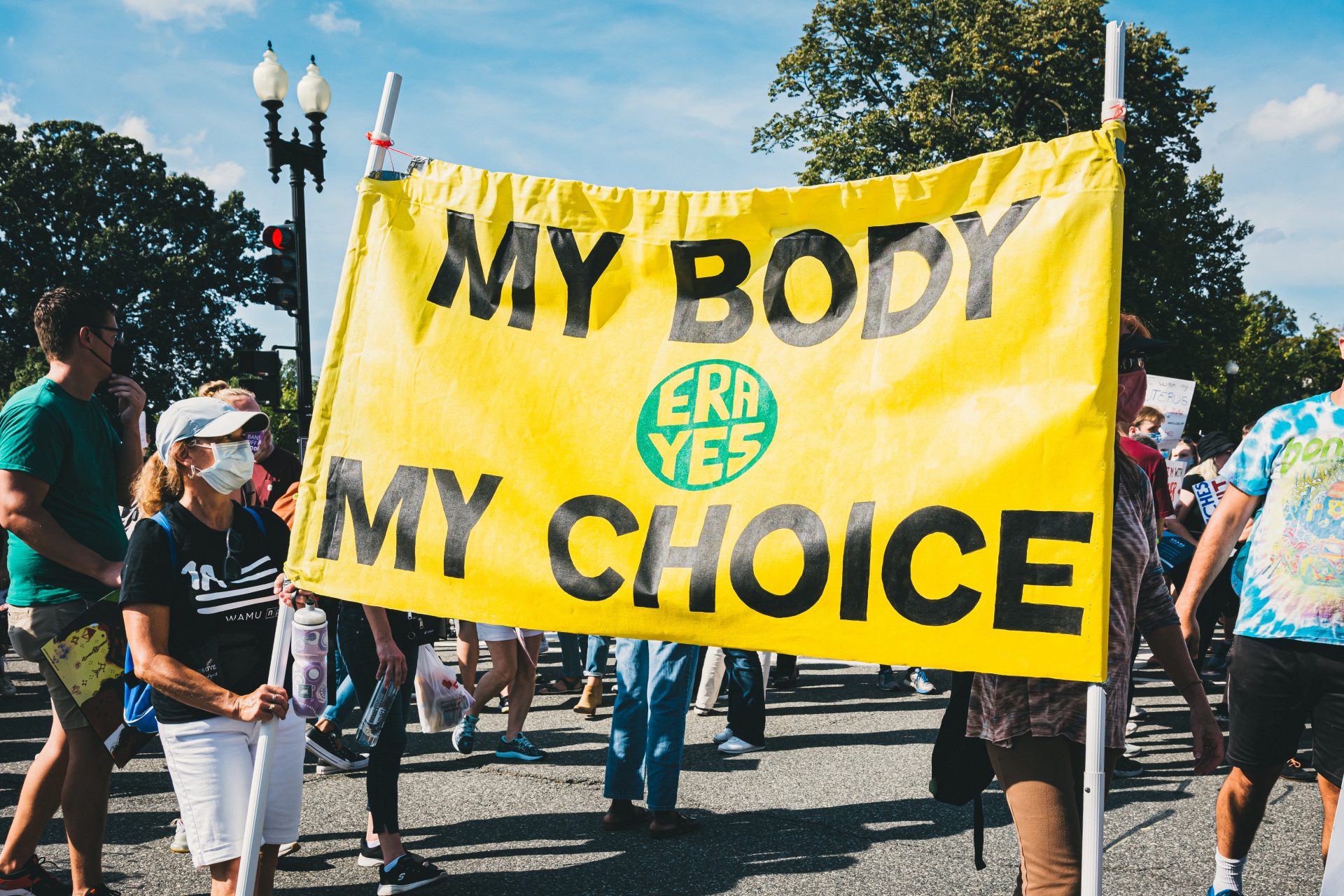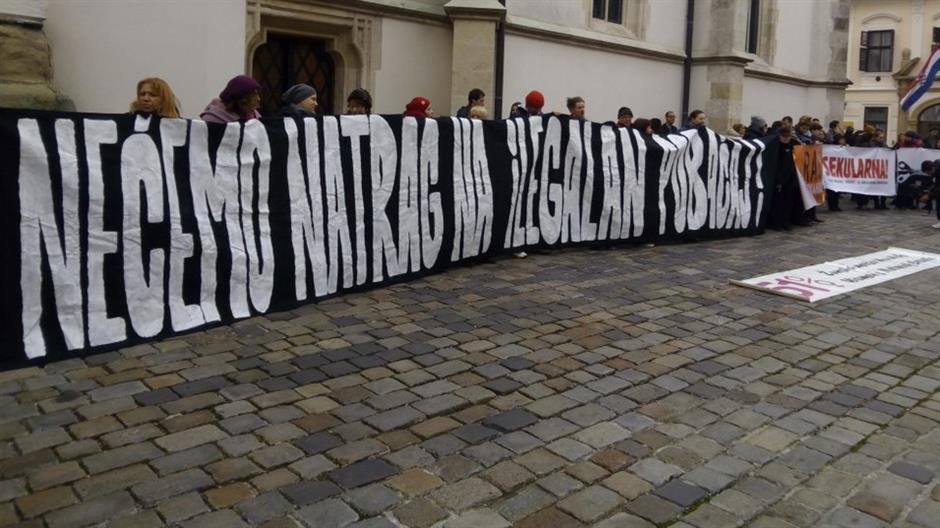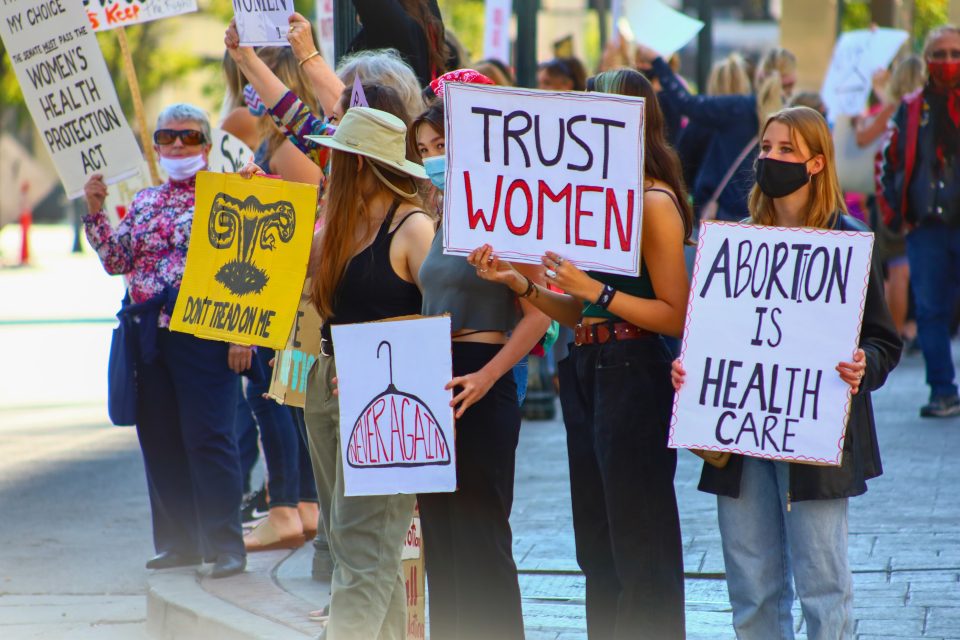
The preservation of reproductive rights is one of the greatest challenges to personal rights in 2022. Activists in both the developed and developing worlds share this common fear as governments large and small slowly roll back on previously established legal rights.
A new report by the United Nations Population Fund (UNFPA) indicates that at least half of all pregnancies every year across the world are unintended due to intimate sexual violence, wartime rape, and a general lack of access to birth control and sexual education (UNFPA, 2022).
On May 2nd, 2022, it was announced via an unprecedented document leak that the Supreme Court of the United States has discussed plans to overturn the ruling of Roe v. Wade (POLITICO, 2022). Roe was a landmark 1973 decision by the Supreme Court which legalized abortion across all 50 states and guaranteed protections for women’s reproductive health as long as the ruling is law (BBC, 2022). The case initially challenged the bans on abortion in the states of Texas and Georgia, where abortion was banned except for cases in which the health of the mother was at risk, and as such, the ruling by the Supreme Court voided nearly every major state abortion ban (Roe v. Wade, 1973).
Not even two months after the document leaked to the public, the US Supreme Court ended the constitutional right to abortion by overturning ruling of Roe v. Wade on June 24, 2022. According to the Guttmacher Institute, at least 21 U.S. states have laws or constitutional amendments already in place that would make them certain to attempt to ban abortion as quickly as possible and an additional four states are likely to ban abortions in the near future.
Since 1973, the issue of abortion in the United States has become a sociopolitical competition between pro-choice activists fighting to preserve access to abortion on demand and pro-life activists seeking to overturn the federal decision. The mostly-conservative pro-life camp has celebrated the draft opinion by Justice Samuel Alito as a major victory in the push to de-legalize abortion at the federal level (CNN, 2022). On the other hand, an estimated 70 percent of voting-age Americans support pro-choice policies, according to activist organizations such as NARAL Pro-Choice America, which have openly decried the current trend of the erosion of abortion rights (NARAL Pro-Choice America, 2022).
Bosnia-Herzegovina is no stranger to the fight for reproductive rights. The country’s very recent history of forced pregnancy in the context of genocidal rape has set this small Balkan nation on a similar track to protect the right to choose one’s own reproductive destiny.
During the Bosnian War in the early 1990s, the combatant Army of Republika Srpska (VRS) adopted a policy of genocidal rape and forced pregnancy to “plant the seeds” of ethnic Serbs in Bosnia and weaken the ethnic Bosniak bloodline (Weitsman, 2008). In response to this crime, the 1998 Rome Statute of the International Criminal Court formally recognized genocidal rape and forced pregnancy during conflict as a crime against humanity (ICC, 1998).

For female survivors of wartime rape in Bosnia, the act was used almost exclusively for the end goal of producing a pregnancy against the victim’s will. Because of the VRS’s genocide policy, an estimated 20,000 to 50,000 women were raped by VRS soldiers, with many reporting being raped multiple times a day (Pehlivan, 2021). Rapes occurred in colloquially-named “rape camps” and other detention centers around the country, but they also occasionally occurred inside the victim’s own home (Husaric, 2021).
The children themselves were also victims of the societal perception that they were tainted from birth. With many of them now well into adulthood, the estimated 2,000-4,000 children born from rape during the war were often labeled as “forgotten children,” “invisible children,” and the Serbian title “Chetnik” (SEMA Network, 2020). As children with no singular ethnic identity in a divided country, many of them either grew up without a place in Bosnian society or were adopted by couples overseas (SEMA Network, 2020). Some children from this generation who were adopted out of Bosnia have decided to return in recent years to develop a stronger understanding of the circumstances of their birth (Nguyen, 2014).
Women’s Rights and Abortion in Bosnia
Even in the highly conservative region, abortions across the Balkans are legal up until the tenth or twelfth week of pregnancy, owing in part to pre-existing laws from the former Yugoslavia which permitted the procedure up to this deadline (Rašević, 1993). Article 191 of the Federal Constitution of Yugoslavia stated that, “it is a human right to decide on the birth of children,” thereby enshrining abortion access as a fundamental human right (Znaj znanje, accessed 2022). The open availability of abortion in Yugoslavia meant that nearly 100 percent of abortions in the Federation occurred in medical facilities and death rates for patients were nearly nonexistent (Rašević, 1993). With the breakup of Yugoslavia in 1991, the newly emergent republics were left to determine their own abortion laws, with some choosing to rework and update their previously existing rules.
In Bosnia, the country’s federal makeup as two entities complicates the legal definition of abortion, among many other laws which are unevenly enforced and distributed across the nation (OECD Development Centre, 2019). In Republika Srpska, abortion is allowed up to the tenth week of pregnancy, but it is primarily allowed in cases of rape, fetal impairment, incest, and risk to the health and life of the mother (Human Reproduction Programme, 2021). In the “Strategy for Improving Sexual and Reproductive Health in the Republika Srpska (2019-2029),” abortion was deemed “a significant social, medical and public health problem […] also an economic problem due to increased costs for the treatment of immediate, early and late complications and infertility” (Republika Srpska Government, 2019). The 2019 Strategy report also issued a government-level alarm about the use of abortion as a regular method of birth control and sought alternatives to reduce the incidences of abortion (Republika Srpska Government, 2019).
Because of the country’s heavy decentralization, activists report that access to abortion is uneven for women across the two entities (Krupalija, 2020). It is not uncommon for some hospitals to refuse to perform the procedure for elective reasons and for others to not have the proper equipment or expertise to be able to perform it at all (Krupalija, 2020). The human rights organization Sarajevo Open Center also reports concern over the rising cost of legal abortions and an increase in underground clinics in small towns and villages which may drive poor and rural women to use these resources (ASTRA Network, 2019).

Today in Bosnia, several non-governmental organizations (NGOs) exist to fight for women’s rights and ensure reproductive freedom. One of Bosnia’s first centers focusing exclusively on reproductive health was Medica Zenica, founded in 1993 in response to the widely reported cases of wartime rape (Medica Mondiale, 2013). Medica Zenica previously provided access to gynecological services for survivors of war-time rape, but it now mainly responds to intimate partner violence and human trafficking in peacetime (Medica Zenica, accessed 2022).
Bosnian women also benefit from the work of outside reproductive healthcare organizations. The UNFPA first opened its doors in Bosnia in 1995 to help young Bosnians become more aware of their reproductive healthcare options (UNFPA, accessed 2022). Since 2019, UNFPA Bosnia has worked together with the government of Switzerland and the UN to assist in the development of reproductive health resources for young Bosnians in at-risk rural communities (UNFPA, 2022). UNFPA Bosnia has also spearheaded a novel vaccination program in the capital of Sarajevo to vaccinate young Bosnian women against the Human Papillomavirus (HPV) to combat the endemic of cervical cancer among Bosnian women (UNFPA, 2022).
Abortion rates in Bosnia are high due to the lack of access to sexual health education. Despite Bosnia’s ratification of the Convention on the Rights of the Child (CRC) in 1993, which calls for equal access to all forms of education, there is currently no national age-appropriate sexual education curriculum (Sexual Rights Initiative, 2014). Republika Srpska’s 2019 Strategy specifically called for raising awareness of modern family planning methods as a means to reduce the current abortion rate (Republika Srpska Government, 2019). UNFPA Bosnia has also been working with local NGOs in both Sarajevo and Banja Luka, the capital of Republika Srpska, to create a nationwide out-of-school comprehensive sex education program that would close the educational gap in rural areas (UNFPA, 2021).
In the US, alongside the current threat to reproductive rights, the sexual education curricula of 37 US states require lessons on abstinence (a total refrain from sex) but accurate information on contraception is only mandated in 18 states (Planned Parenthood, accessed 2022). Only 13 states require medically accurate sex education, while 19 states focus exclusively on abstinence (World Population Review, 2022). As a consequence of inadequate sex education, the US has the highest teen pregnancy rate of any developed nation, and these consequences are more evident in states where students are not given proper knowledge on their sexual health (Stanger-Hall and Hall, 2011).
On the issue of abortion, the US and Bosnia share a number of similarities. Because of heavy decentralization, both countries struggle to uniformly apply reproductive rights and education to all citizens. However, many Bosnian women are intimately aware of a time when their reproductive rights were taken from them by force. It remains to be seen how Roe’s reversal will affect women and future generations born from this decision.






